Facebook to buy instant messaging service WhatsApp for $19bn
Social networking giant claims IM service shares same view on making the world "open and connected".
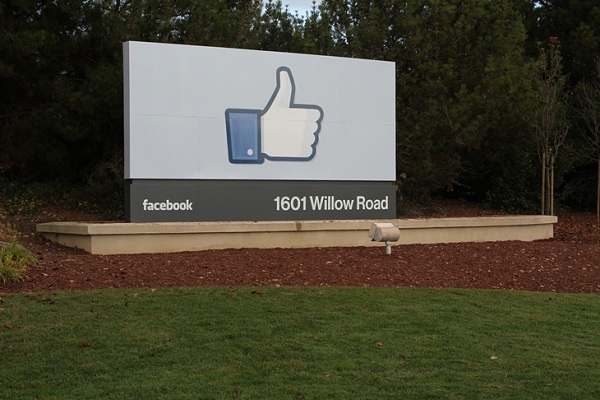
Facebook has agreed to splash out $19billion to acquire over-the-top messaging service WhatsApp.
The deal is the largest the social networking giant has struck in its history, and dwarves the $1 billion the site stumped up for photo-sharing site Instagram in 2012.
It is also much larger than the $1 billion Google was rumoured to have offered for WhatsApp last year.
Since WhatsApp and Messenger serve such different users, we will continue investing in both and making them each great products for everyone.
Facebook founder Mark Zuckerberg confirmed the latest deal in a blog post last night.
He claimed the deal was the result of both firms' commitment to making the world "more open and connected", before going on to reveal what the future holds for WhatsApp.
"WhatsApp will continue to operate independently within Facebook. The product roadmap will remain unchanged and the team is going to stay in Mountain View," wrote Zuckerberg.
"Over the next few years, we're going to work hard to help WhatsApp grow and connect the whole world."
Sign up today and you will receive a free copy of our Future Focus 2025 report - the leading guidance on AI, cybersecurity and other IT challenges as per 700+ senior executives
The four-year-old instant messaging service is reportedly used by 450 million mobile users each month, with more than one million people signing up to use it every day.
In the post, Zuckerberg insisted the service will complement Facebook's existing messaging services, rather than replace them.
"Facebook Messenger is widely used for chatting with your Facebook friends, and WhatsApp for communicating with all of your contacts and small groups of people," he explained.
"Since WhatsApp and Messenger serve such different and important users, we will continue investing in both and making them each great products for everyone."
In a separate blog, the WhatsApp team moved to reassure users the service will remain unchanged as a result of the acquisition.
"You can continue to use WhatsApp no matter where in the world you are, or what smartphone you're using. And you can still count on absolutely no ads interrupting your communication," the blog post stated.
"There would have been no partnership between our two companies if we had to compromise on the core principles that will always define our company, our vision and our product."
-
 Meta's huge capex spree shows it's struggling to keep pace with Google and OpenAI
Meta's huge capex spree shows it's struggling to keep pace with Google and OpenAINews Meta CEO Mark Zuckerberg promises new models this year "will be good" as the tech giant looks to catch up in the AI race
-
 The open source ecosystem is booming thanks to AI, but hackers are taking advantage
The open source ecosystem is booming thanks to AI, but hackers are taking advantageNews Analysis by Sonatype found that AI is giving attackers new opportunities to target victims
-
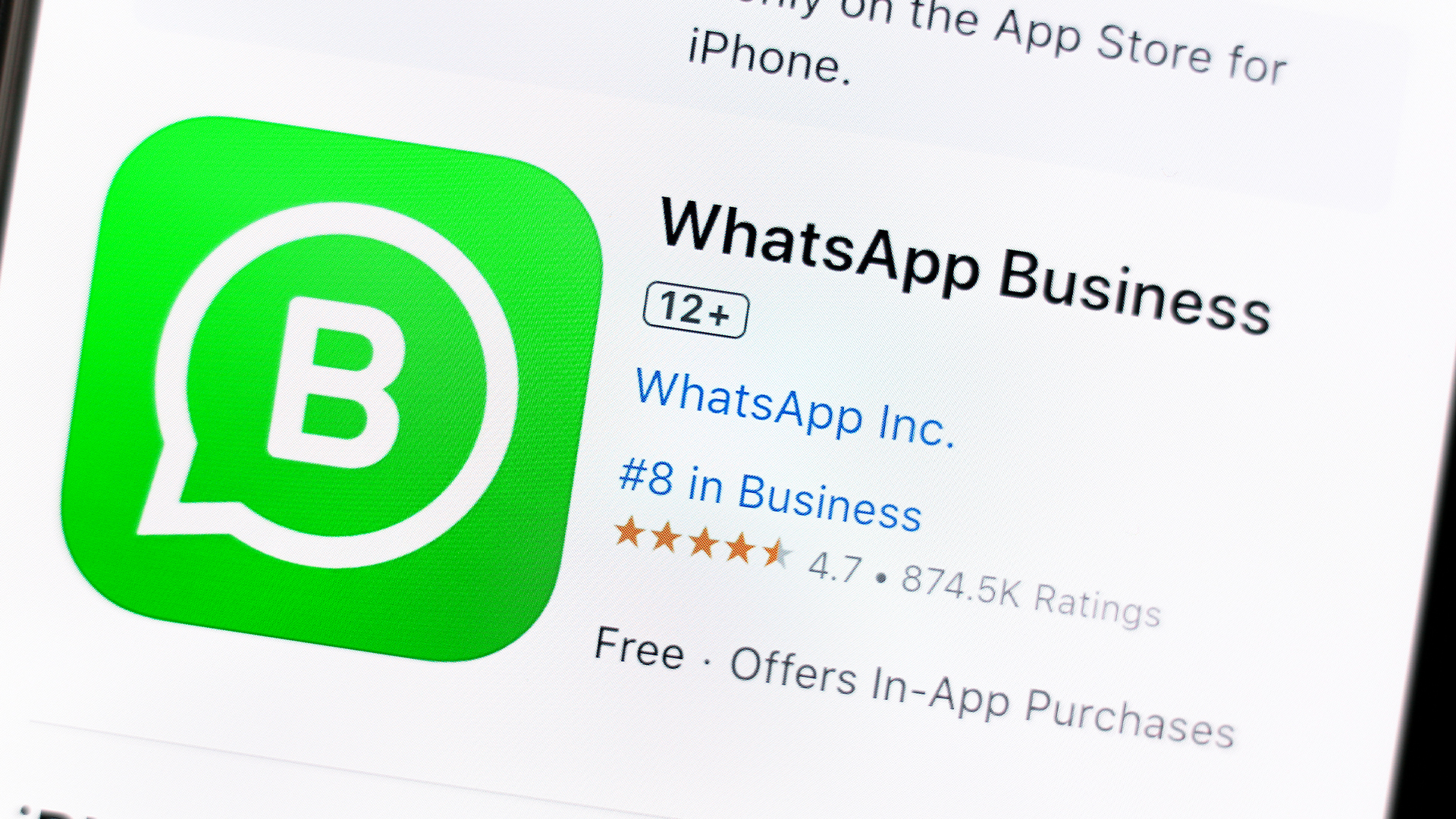 WhatsApp Business prices are set to change – here's what you need to know
WhatsApp Business prices are set to change – here's what you need to knowNews This is the first rate change for WhatsApp Business users since it adopted category-based pricing over a year ago
-
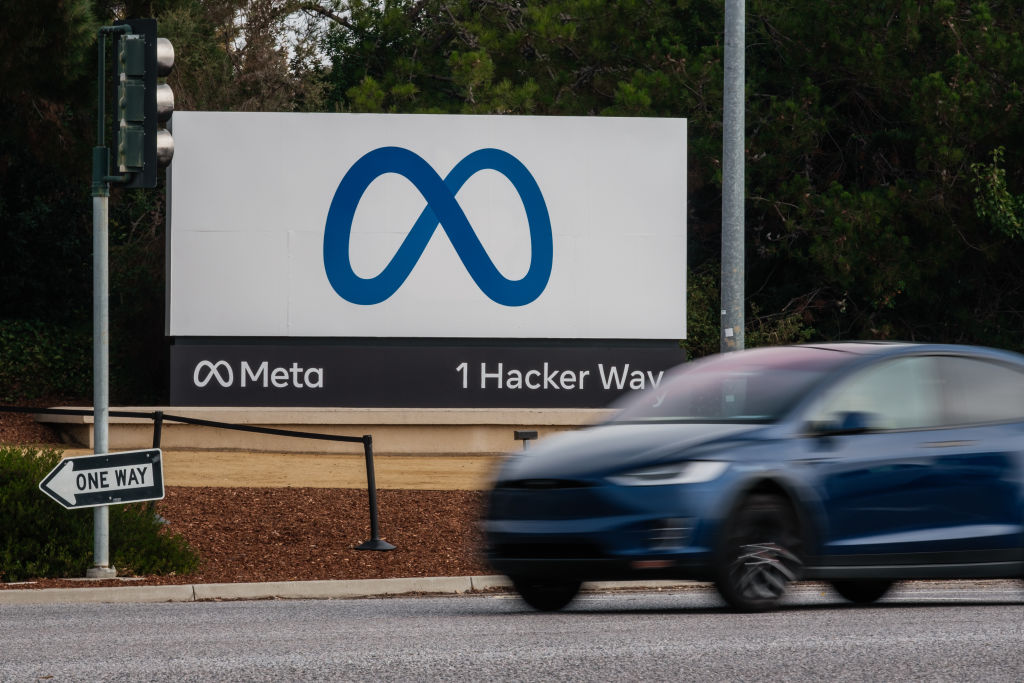 Meta cuts 11,000 staff, citing wrong call on investment
Meta cuts 11,000 staff, citing wrong call on investmentNews Mark Zuckerberg informed employees that the company needs to become ‘leaner’ through spending cuts
-
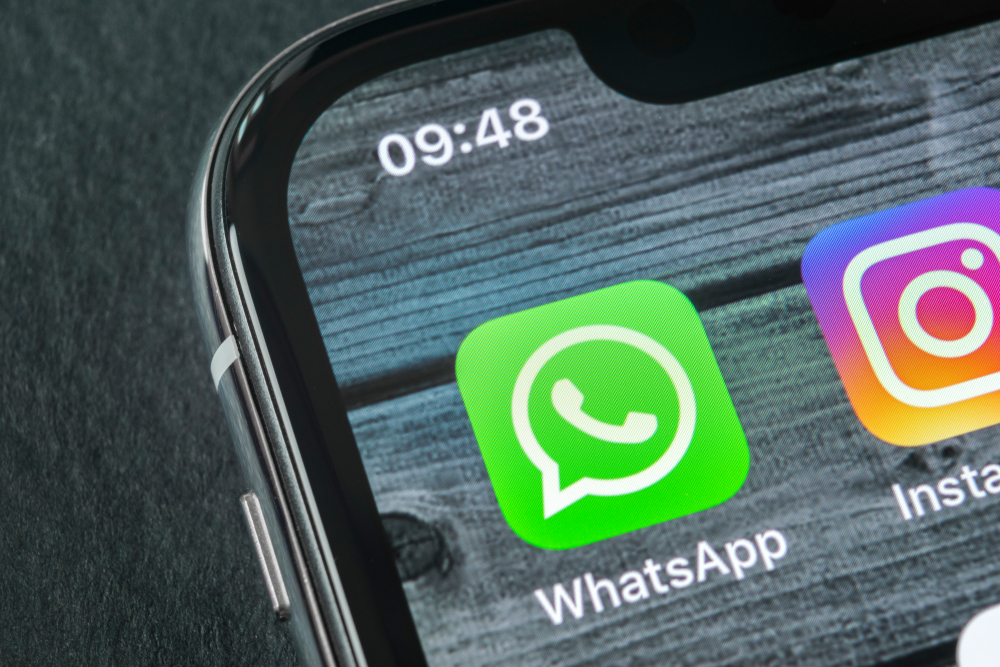 WhatsApp Communities to unify workplace group chats, expand functionality
WhatsApp Communities to unify workplace group chats, expand functionalityNews Group chats will also expand to 1,024 participants, as WhatsApp aims to cater to larger teams
-
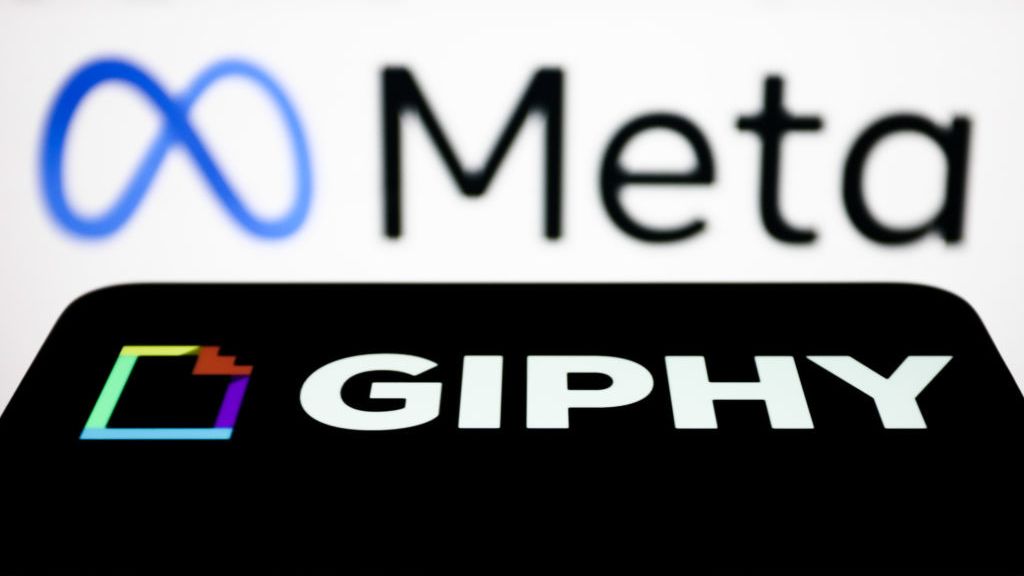 Meta ordered to sell Giphy in CMA ruling
Meta ordered to sell Giphy in CMA rulingNews After more than a year of investigation, the watchdog says Meta's acquisition reduces competition across social media and advertising
-
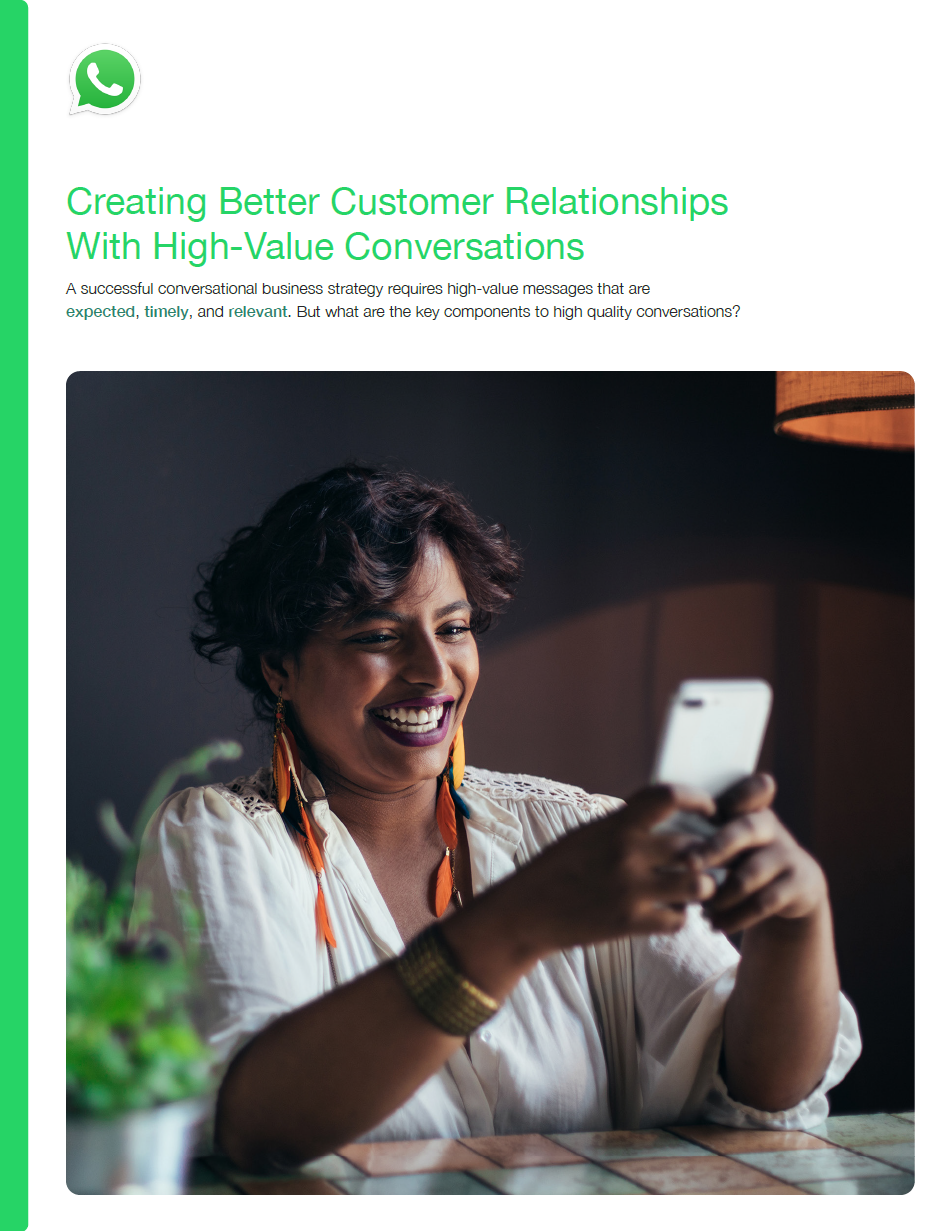 Move to business messaging and let richer connections begin
Move to business messaging and let richer connections beginWhitepaper Creating better customer relationships with high-value conversations
-
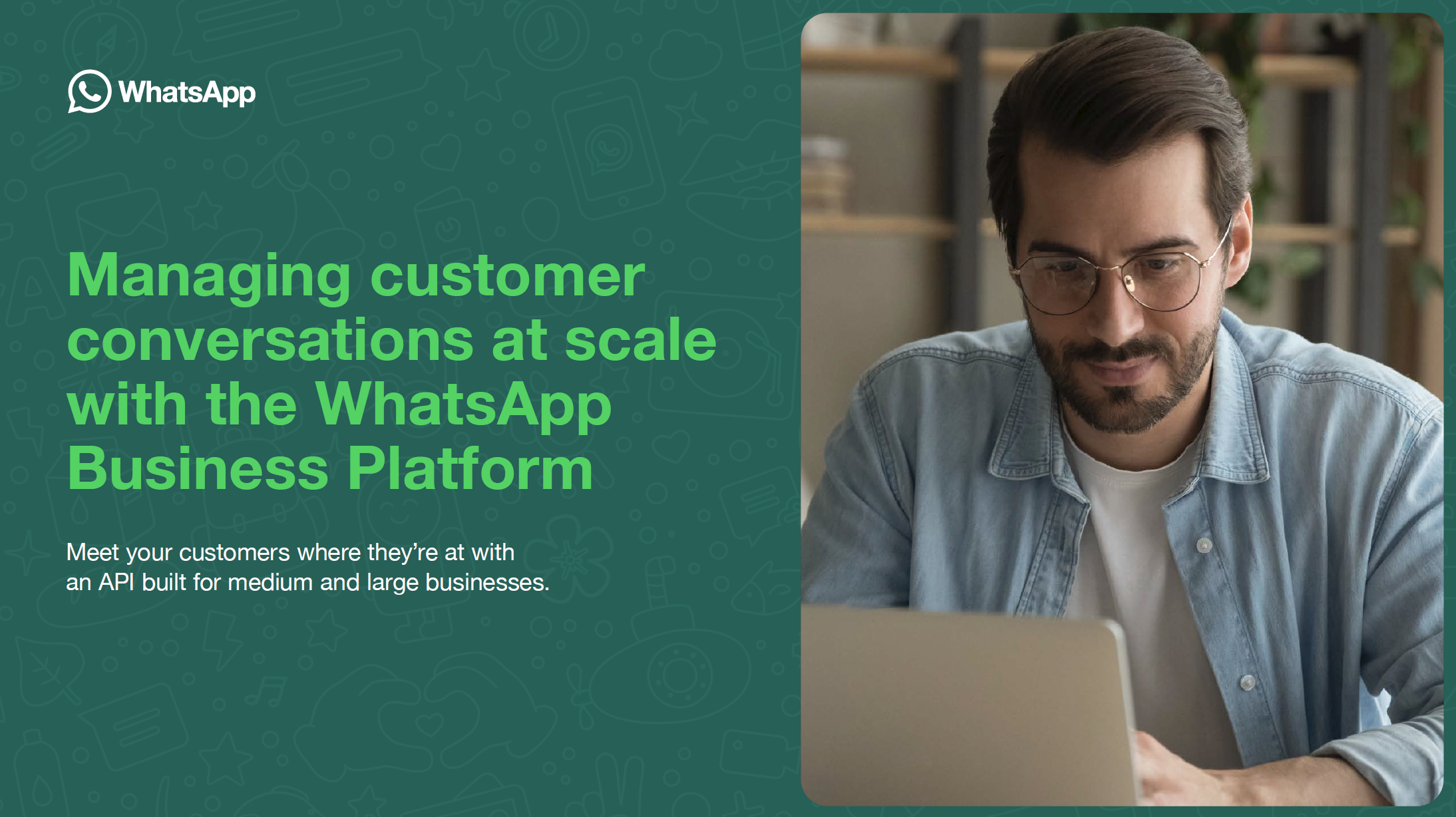 Talking to a business should feel like messaging a friend
Talking to a business should feel like messaging a friendWhitepaper Managing customer conversations at scale with the WhatsApp Business Platform
-
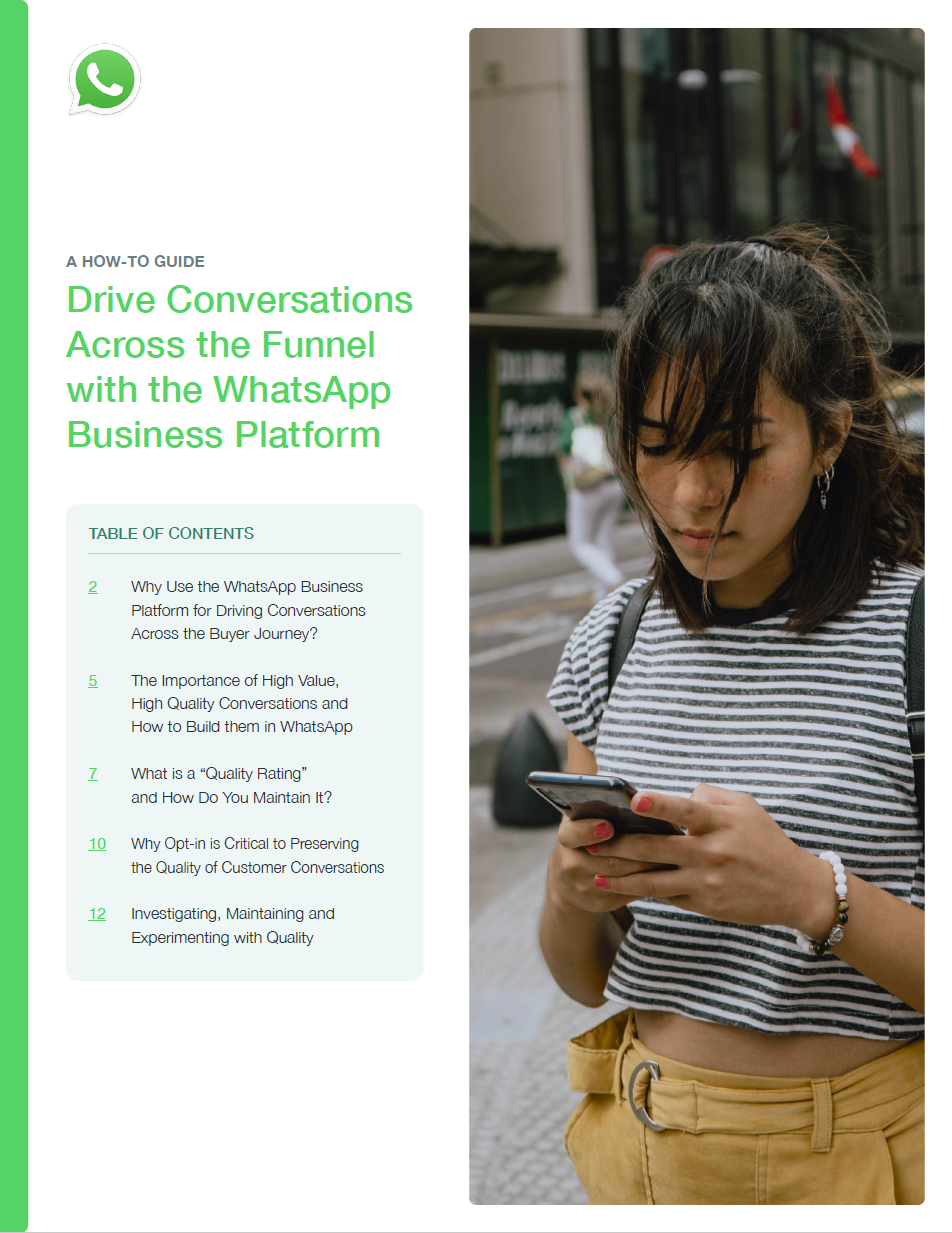 Goodbye broadcasts, hello conversations
Goodbye broadcasts, hello conversationsWhitepaper Drive conversations across the funnel with the WhatsApp Business Platform
-
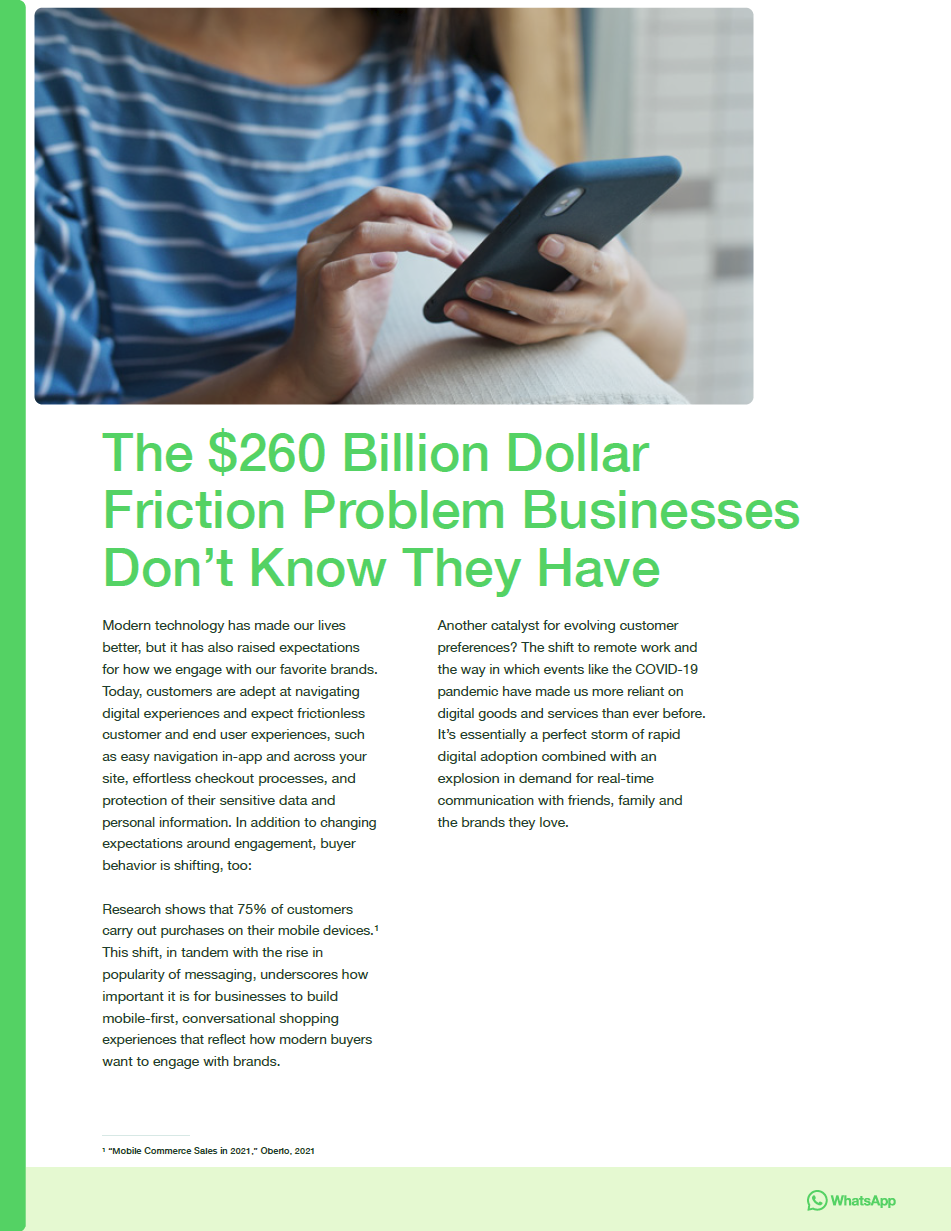 Remove barriers and reconnect with your customers
Remove barriers and reconnect with your customersWhitepaper The $260 billion dollar friction problem businesses don't know they have